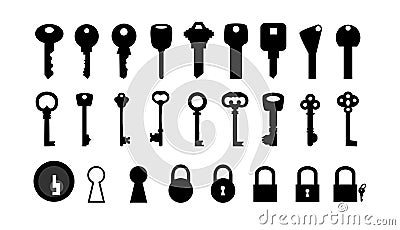
Or rather I would like it to be.

Or rather I would like it to be.
My morning routine is pretty fixed. I get up early and go for a swim, in a thick sleep induced fog, and the lack of cognition I bring to it can’t be overstated. I function by routine; the same breakfast, the same bus, the same locker.
Last Friday, I found that someone was in my usual locker. Not to worry. Instead, I put my gear in the locker below and got on with my swim. With me so far?
Swim done, out I get. It’s about 7.35 am and I’m fully in my routine. I get to the lockers, nod to the guy next to me and open my usual locker. Once I can see inside, I realise/remember that it isn’t my locker this morning and shut it immediately.
However. I saw what was inside. And what I saw….

Don’t research this, it will ruin your childhood.
“Spiderman underwear!” I say to the person next to me.
“Sorry, what?”
“Spiderman underwear, that person had Spiderman underwear!”
We look at each other in amazement. “I hope whoever it is, is ten years old,” says my locker buddy.
“Really? No, I hope they’re forty-two years old, I think that’s brilliant!”
“You don’t think they’re for children?”
“Well, we’ve all got our own sides to us, don’t we? For example, the author of Wind in the Willows was the Governor of the Bank of England!”
“That really true?”
“Yes, it is! Who ever it is, fair play to them.”
This last part is said to each other over our shoulders, as we gather our items. Mine take several trips, I don’t want to drop anything on the wet floor.
As I go back to the lockers, there, standing at the open locker, is a man. He was seconds away from us as we talked, and looks like he came from the showers, he’s heard everything. I come to an abrupt halt, with an audible ‘oh…’ in horror.
I come up to my own locker, wondering what to say. He doesn’t turn his head, but merely gathers up his items with great dignity. As he leaves, he says one thing.
“I don’t think about Spiderman in meetings, you know.”
Make amends! Make amends, calls out my brain! So I call out to his retreating back, “But I think Spiderman is cool!”
But there is no answer, as he walks down the hall.
Well, bother. And now, his face is fixed in my memory. If I ever meet him on campus, I will remember, instantly, that this is the man with the Spiderman underwear.
And worse luck, so will he.
I managed, over the course of a week, to watch Whiplash. It’s a strong Oscar contender, and the trailer is amazing for its tightness, and its focus. It tells the story of a student drummer enrolled in a facsimile of Julliard, whose teacher pushes him beyond the limits by sheer abuse. That isn’t me hand wringing, by the way. The trailer itself makes it absolutely clear, from the first lesson, that J.K. Simmonds’ teacher does not follow the Socratic method.
Why so long?
As I said, it took me a week to watch it. The structure of my day means I work, come home and do housework for half an hour, and then pick up Little Man. When he’s home, he is the priority, not films, so other than the Daily Show over dinner, nothing else gets watched. It means I saw Whiplash in about twenty minute segments per day, until we were done. That may have influenced my reaction to it, because I’ve a few thoughts that aren’t really being reflected elsewhere, as far as I can see.
The movie’s question
The movie sets itself up to ask a certain question; is this teaching method acceptable if results are obtained? If it works, is it forgivable? One of the ways it asks this, is by concerning itself with the Mens Rea of the Teacher. Does he want this student, Andrew, to succeed, seeing in him some worthwhile spark of greatness? Or does he merely enjoy abuse, unable to step away from his tactics no matter what it does to the student?
Spoilers!
Here is the spoiler part my title speaks of. At one point, the teacher Fletcher gets a phone call after class, a phone call that leaves him distressed. At the next class that evening, he reveals that a student of his, who had gone on to great things, had died in a car crash. He then goes on to give the lesson, and what a lesson. Driven even more angry, he compulsively makes each drummer pound the drum until they reach the speed he demands. He holds up the lesson until they get there. The lesson started at 9 pm. Fletcher is a man possessed in that class; each student has their worst fears yelled at them while they sweat and bleed on their sticks. Our hero is told that his mother left him as a baby because of the aura of pathetic he conveys, and that he will amount to nothing. Somehow, though, he does it. He reaches the required tempo. The other students are now called back in, at 2 am, and when they do finally get to leave the building and go home, our hero seems to have aged ten years.

Miles Teller (left) and J. K. Simmons in “Whiplash.” Credit Photograph by Daniel McFadden / Sony Pictures Classics / Everett
What happens next
The next day, our hero somehow makes it to the performance, despite suffering a car accident and near hysteria due to his panic at not being on time. Fletcher, unimpressed, pulls him out from the drums (he was dripping blood) and Andrew throws himself on him, fighting and kicking in rage. He is pulled off the stage; he is thrown out of the school. He takes up a job in Starbucks to pay the bills, and puts his musical aims in the closet. He is then contacted by the family of a former student, and things take another twist.
The student who died in a car crash, didn’t die in a car crash. He in fact took his own life. And he took his own life on foot of mental problems that started when Fletcher was his teacher. That was the telephone call Fletcher took. That was the detail that spurred him on that night. And what a reaction! To learn that you have driven a young student to suicide, only to be compelled to cause more pain, more agony. I have caused death, he has thought. I will continue on, but even stronger.
Andrew is asked to tell of his own experience in an effort to get Fletcher fired, and he does just that. But he agrees when Fletcher asks him to play in his own band months later. The final scene is both nightmare and dream, really, Fletcher, it seems, knew all along it was Andrew who helped get him fired, and orchestrated him being on stage, in Carnegie hall, without proper notes so as to shame him. Horrified, Andrew leaves the stage, but then turns back on his heel and goes back to his drums. He starts a set that leaves everyone gasping and as you can hear here, guides the rest of the band into Caravan. Fletcher is furious, but maintains his role on stage. However, the excellence of Andrew is compelling; he gives a virtuoso performance, and Fletcher is spun back into being his teacher once again. The movie ends with the Mens Rea of Fletcher being confirmed, in the final second, as being that of the teacher; his belief in Andrew is confirmed, he was about the spark of greatness all along.
Why this is more dangerous than 50 Shades
This movie is a fantasy. It is about accepting abuse from someone in the belief that they are somehow about your own best interests, that they will make you better, and you will just have to put up with this if you wish to be considered good enough. Fletcher is a teacher who will drive students to suicide, and consider them weak, rather than back off. He wants greatness but he doesn’t want to learn himself. He seeks to teach, but not to care, and the movie frankly agrees with him. Andrew becomes amazing at his art. And he does that after months of inactivity, a dream coming true right in front of our eyes. Andrew’s pain and agony is not important, what is important is where he ends up. And his emotional state is not part of anyone’s concern. Again, and I’m boring people now at this stage, women are delicate flowers, men get to suck it up, and round and round it goes. Andrew, in his way, gets the same message as Anastasia Steele, that the abuse they suffer is worth it in the end, but there is very little concern about his life out there. Andrew is under Fletcher’s thrall completely by the end of the movie, and so everything is … worked out? If the music is good enough, it is worth it.
I’m unconvinced. Whiplash is a fantasy, not reality, and it ignores the consequences of what it proposes, like a good movie.
No, seriously, there isn’t. There is nothing wrong with it. It is fine. Just fine.

But, you my beloved reader might ask, surely it is wrong, and indeed wrong on several different fronts? It is badly written, so badly written as to be a source of mirth? It is also wrong in terms of its morality; the relationship it depicts is abusive, incorrect, lacking in moral fibre and abusive? BDSM communities hate it, as it shows the worst stereotypes of its community, and it is also just filth? It will lead young girls to believe that these relationships are normal, correct, happy? This book is wrong, and indeed should be removed from circulation?
To these points, I make the following retorts;
1. Badly written work; Oh, yes, it is trash, but for the purpose it has it does just fine. Millions have read it and liked it. It is fantasy, not reality. And for most of us, the concern is not that it is badly written, it is that it is badly written for such a popular novel. Right now, there are millions of badly written books out there, but no one cares. We care because it is so lauded by its sales figures, and because it has become a stock of popular culture.

2. It’s morality – the story told is a fantasy, of a billionaire falling in love with a naive young woman who falls in love back. After much sex, tension and misunderstanding all is well. The book is a fantasy; billionaires do not care much for undergrads, nor do they seek out their thoughts. Certainly he has money, but she is not a heroine focused on that, it is not a big deal beyond a point. The point is that this is porn, not just a novel. It is for the reader’s sexual gratification rather than the reader’s literary one. The morality is besides the point.
One ring to rule them all? Pfft, sure!
3. BDSM; again, this is FANTASY, people. If readers are led to an abusive BDSM relationship because of this book, then they are easily led. Then there is the spoken aloud concern for young women who might read this work and thus believe that they can get happy by entering such a relationship. Women will not be saved by an abusive relationship because they don’t read this novel. Men and women are abused for a host of reasons, but this novel is only a single point of pop culture. This is not the fear we all think it is.

They ain’t gonna find a billionaire, either.
Interestingly, there is rarely a spoken concern or fear about the elements given to male sexuality. There is no worried frown or fear given over to the education, or message, young men receive from pop culture, or for that matter from the sex education they receive from porn. And porn is considered more and more the norm for young men these days. It’s not considered cheating, it’s not considered deviant. Indeed, Cindy Gallop points out in her Ted talk that the vast number of young men she dates have received their sex education from porn. There are free sites for porn on Reddit.com, and the titles alone make 50 Shades look sweet; They speak about hurting, about mastery, about destroying and about humiliation. Of all this, because it is focused on men, no one cares.

Women are, once again, made to be the standard bearers of morality and otherwise. They must be protected, men must not. The point is, that 50 Shades gratifies without morality, and for some that has to be stopped.
The practical way he writes about writing makes me want to pound on the keys of my keyboard.
We’ve all watched a lifetime’s worth of TV and movies that put big and often violent events into the first five minutes as a hook to get our attention. The assumption is that we have the attention span of chimpanzees. But hooks are hard to live up to; you can’t stay at that level. Besides, screen culture does violence better than written culture — leave the big violence to the movies. Better to start with a small mystery and build up to a bigger one. The truth about a situation is always big enough to sustain someone’s attention.
I’ve had a lot of change in my life in the last ten years. Tried one career, failed, and tried another (it seems to be sticking). Tried one relationship, really really failed, then tried another (that one seems to be sticking too). Moved house four times, from a shared house to a shared flat to a flat on my own to my own flat and now to the house I live in in the suburbs. Got married. Lost my Mum. Had my little boy…
It’s funny how all that change led to small pockets of resistance within me. I still have items about me that are no longer in use by me, but which I retain nevertheless. An example of this is my set of keys. I have on it the old house key to my family of origin’s house, a key for a lock that isn’t there any more. Same goes for the key into the kitchen. It was where you’d find my Mum, and the family jack russell, both usually the ones I’d be missing the most. There would be something in the fridge or in a biscuit tin or in the oven to eat. And there would be a chat, a welcome, something that would remind you you’re home.
That door isn’t even there any more. They renovated the place long after I moved out, and I found some element of sentimentality kept it on my key ring. The same instinct applies to most of the keys on it, for some reason I’ve kept keys that don’t exist any more, have no where to go. I couldn’t use this key now if I tried, there’s no door there to let me in.

I’m going to get rid of all of these old, unwanted keys. I’m going to walk around a little lighter, without all these keys to remind me of places I can no longer go.
Except for that kitchen key. That one I’m keeping.
It is a startling, scary thing to admit but I have read a book. I did, it was a grown up book and everything. It was called For God’s Sake, and you can find details about it here.

I found myself actually growing more and more suspicious about the book as I read it. There is nothing itself within the discipline of Psychiatry that ensure the remove of a status quo. This certainly applies in Ireland as it does elsewhere, where the wheels of the medical profession move to stock up and ensure that the dialogues of power are enforced and encouraged.

The book starts with the nuns’s statements being discussed and broken down. Along with that there is an introduction to each nun’s statement that explains their flaws, sins, and ‘blindness’ as to their own flaws. There is no clarity as to where there is any direct transcript of these women’s voices, only the presentation of them through the filter provided by the author/editor. So the book is, while possibly accurate, a nice example of the operations of power that can exist in a society.
TL;DR; Nuns were good, now they were bad. M’kay?
And so we come to the final blog on my 12 Good Deeds…. I hope some of these are helpful to you, and that you enjoy reading them. Here is the final good deed for you all.
Deed Twelve – Give money to a good cause
Yeah, you heard me. Give some money to people who are able to do more with it than you can; This place would be an excellent place to start, for example, but that is just one suggestion. Try to pick some charity that would mean a lot to you, if you can, so that you know you are doing the best you can with your money. A fiver, a cent, something that will further a cause you believe in.
And that’s it. My deeds are spoken, my hands are empty of anything further to gift to you. All I say, is to give my incantation that your heart be at peace this Christmas, your loved ones joyous, and that you know contentment.
Lots of love.
Claire

This is, of course, exactly what I look like.
Edit; and to recap, here are the 12 Deeds in total;
Deed One – Write A Thank You Note
Deed Two – Buy a Book in a Bookshop
Deed Three – Take a Walk
Deed Four – Give up your Seat
Deed Five – Pick up Litter
Deed Six – Give blood
Deed Seven – Email a TD
Deed Eight – Attend a live event
Deed Nine – Give someone food.
Deed Ten – Give a Tip
Deed Eleven – Play a classical piece.
Deed Twelve – Give money to a good cause
There is so little time, don’t you find? So little time to pause, reflect, be thankful. Or even just to take stock, to note the change of the seasons and the movement of the planet through the dark space of winter. So this next one is aimed to give you that five minutes or more to give you that space:
Deed Eleven – Play a piece of classical music or put up a picture that has cultural value.
Note, you decide what has cultural value here. But give yourself that empty space to think. What was the best time of the year? What was the worst? What can you learn from that, about yourself and other people?

Oh so THAT’S why….
Grant yourself the gift of time, if you can.